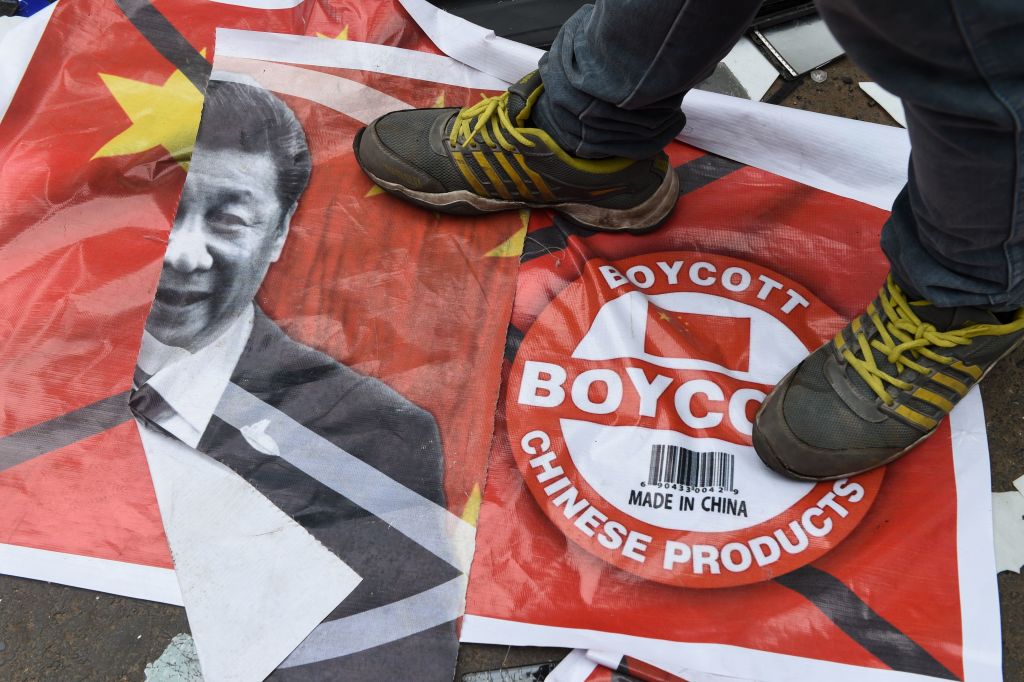There was cautious expectation China would become a responsible member of the international community, given its 40-year surge towards free trade. This has sadly not come to pass. China’s offence-is-the-best-form-of-defence posture after the spread of the coronavirus pandemic from its soil, has confirmed the Chinese communist party’s aggressive streak. But now countries neighbouring China are building a coalition aimed at reining in their increasingly noisy neighbour.
Foreign ministers of a revitalised QUAD – a grouping consisting of the US, Japan, India and Australia – met in Tokyo last week. After the meeting, US Secretary of State Mike Pompeo railed at Beijing’s ‘bad behaviour’ and the threats it posed. He echoed that when the Australians asked for an investigation into the coronavirus and where it began, ‘the Chinese Communist party threatened them’.
Pompeo also pointed out that China had amassed 60,000 soldiers on India’s frontier. He said that India ‘absolutely need the United States to be their ally and partner in this fight’. Ever since Narendra Modi abandoned India’s decades-old policy of equidistance from warring superpowers and embraced the US in 2014, India has been under pressure from Washington to extend its military presence beyond its borders and the Indian Ocean, whether in Afghanistan or the South China Sea. Such expansion would arguably be expensive, not to mention a defence pact with the US, which New Delhi has consistently resisted, steering clear of Seato, Cento and Nato. Yet faced with the predicament of China playing hardball and a shattered Indian economy, Modi is boxed into a corner.
But India is not alone in struggling to determine the best way of handling China. Taiwan’s de facto ambassador to Washington sought clarity this week on whether the US will defend the island against a forcible Chinese attempt at a takeover. Meanwhile, this week, Japan said Chinese ships entered the area near the Senkaku/Diaoyu Islands in the East China Sea contested between the two. Chinese air intrusions over the region continue to occur. Years of such provocation has compelled a pacifist Japan to invest in its own defence capability in addition to the post-war security arrangement with the United States.
An overwhelming majority of the 10 ASEAN nations are wary of China and therefore tacitly supportive of its containment. But the list of countries changing their strategy on China isn’t only confined to the region.
Canada-China ties are under severe strain since the former arrested Meng Wanzhou, an executive of the controversial Chinese telecom company Huawei and daughter of its founder. China, in turn, has awarded a death penalty to a Canadian citizen accused of drug smuggling and detained two others.
The European Union has previously flagged as a concern China’s ill-treatment of Uighur Muslims in Xinjiang province and its disregard of the Hong Kong handover accord with Britain, without quite upping the ante. This may now change after China intemperately warned the Czech Republic, a EU member state, that it would ‘pay a heavy price’ for a delegation led by the president of the Czech senate visiting Taiwan.
With equal prickliness, Chinese Foreign Minister Wang Yi this week reacted to the QUAD meeting by saying it was aimed at building an ‘Indo-Pacific Nato’. Yet the die is cast to rein China in from its unruly conduct by building, as Pompeo put it, a coalition against it. Joe Biden, the Democratic candidate who could become the next US president, has also proposed an international cooperative with other democracies that China ‘can’t afford to ignore’.
Britain was stung by a flagrant transgression of terms in the 1997 agreement to transfer Hong Kong to China. So, will Boris Johnson deploy the new aircraft carrier HMS Queen Elizabeth to Asian waters to complete the encirclement of China?






Comments